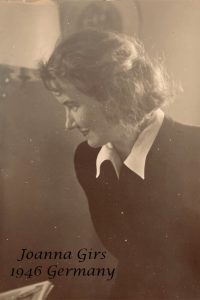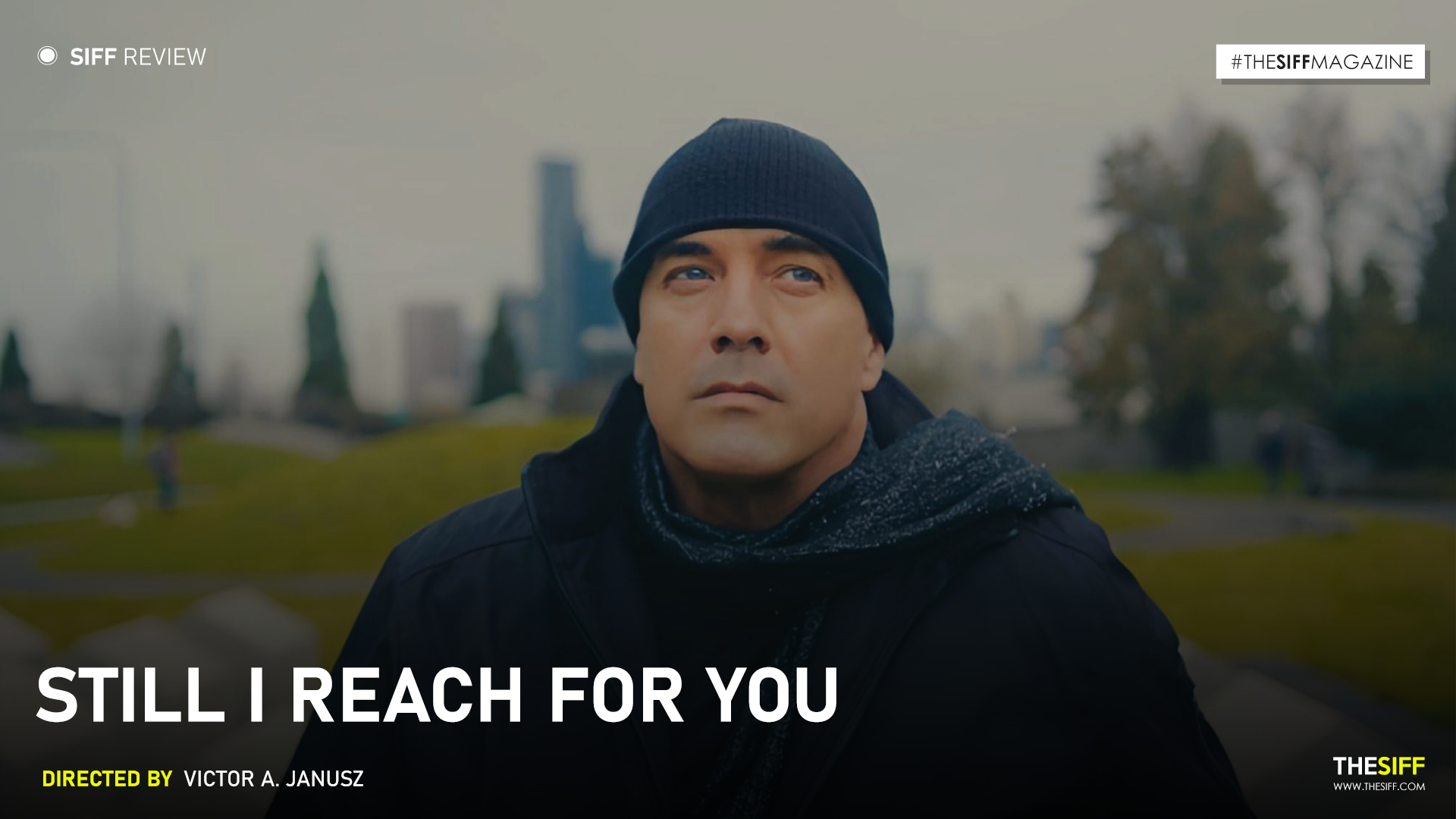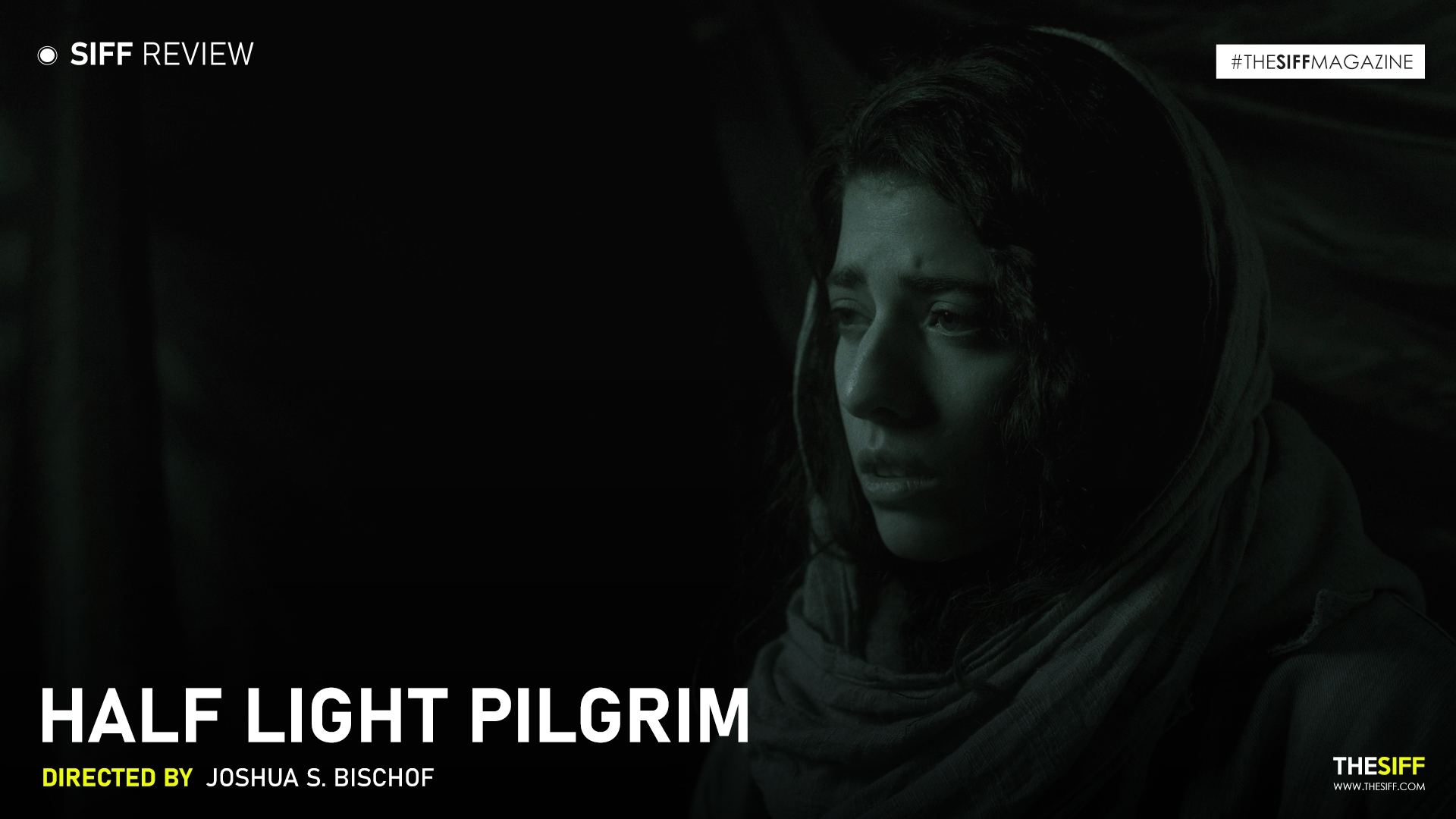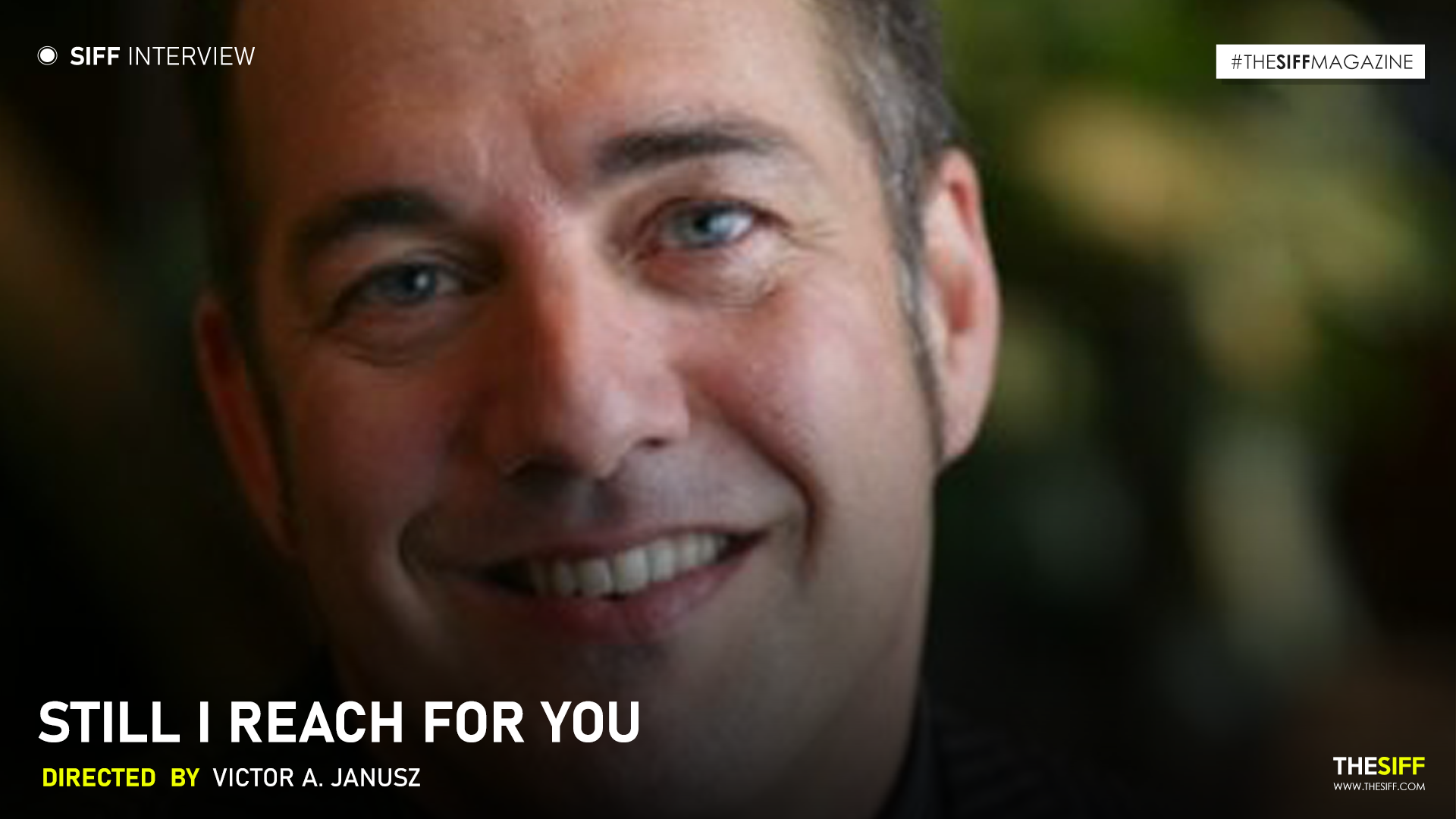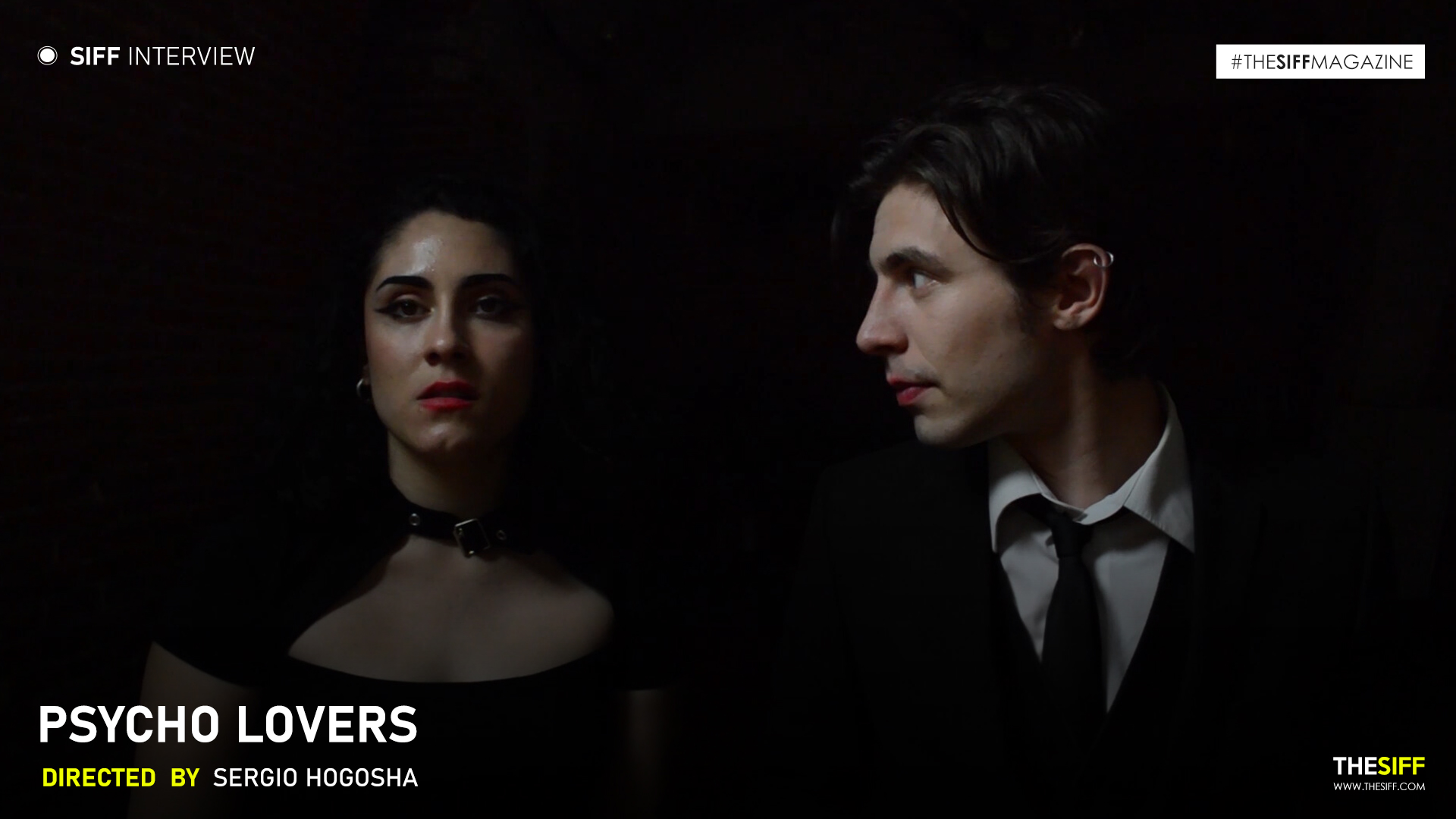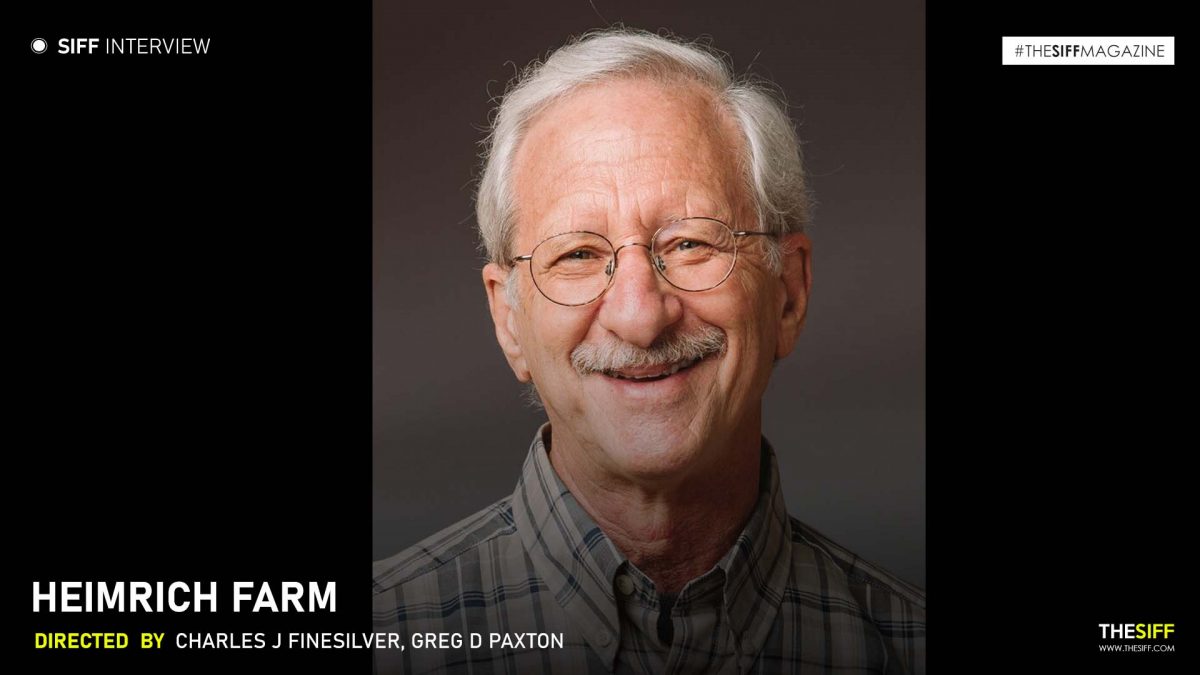
Movie Name – Heimrich Farm
Director Name – Charles J Finesilver, Greg D Paxton
Hello Charles! Welcome to SIFF
1.The story of Joanna is truly heartbreaking. What made you take up such a sensitive topic and create such a wonderful masterpiece?
Thank you for your wonderful question and comment. My need to tell Joanna’s story grew out of a personal experience I had some years ago.
I had lived in New Hampshire high up on a hill overlooking the Connecticut River Valley. I walked down a short way to a big old rambling New England house, the home of my elderly neighbor Joanna Girs. She was always happy to see me. She would take out home-made strudel that she learned to make in the old country and put up tea. Occasionally there was a woman, a visitor who would scurry off soon after I entered the house; I knew Joanna’s daughters and I asked her, who was this stranger? Her answer was a tearful story that unfolded over several visits.
As a young teen in her Polish village, she was by the window watching an Easter Procession in the courtyard below when SS troopers marched in. The commandant shot the mayor dead then killed another man. The soldiers opened fire with machine guns killing many in the church procession. Several soldiers stormed up their stairway and at gunpoint took Joanna and her sister Natalia, putting them on a train in separate cars. Joanna was sent to a German farm to work as forced labor for a Nazi sympathetic family. They did not treat her well. But she was secretly learning German, standing at night in front of her broken mirror in the small decrepit room that was now her bedroom. After a year she became fluent. She escaped.
Now on the run, wending her way through German towns and villages, she was hoping to eventually find a ship to take her to America. In a forest she came upon a traumatized starving abandoned Polish war child, Aniela. She decided to return this girl to her home rather than seek her way to the United States. With the little information that the child could remember of her town and a yellow home by a bridge, Joanna took her by the hand and after several months eventually found the house. Her mother, cleaning the stoop, screamed in joy at the sight of her little girl; Joanna collapsed onto a concrete bench.
The stranger that I saw who came to visit Joanna at her New England home was that little girl.
2.Why do you think Joanna chose the life of a spy?
When Greg Paxton and I decided to collaborate on this script, we understood that this was a powerfully emotional and intimate war story. This was not an epic tale with battle scenes. We felt that the storyline would benefit if we could amp up the tension. Greg and I decided to have Joanna enter the Polish Resistance as a spy. It was a natural progression: she was now fluent in German, with an understanding of German life and their devotion to the Fatherland from her experience with the Heimrich family on the farm. She could help in the fight against the Nazi savagery. Their brutality had upended her serene family life; she witnessed German troops murder innocent people; she had been treated as a slave by the Heimrich family; learning that her sister Natalia was needlessly killed by the German soldiers increased her anguish. It deepened her commitment to help the Allies in any way possible. She would join the cause.
Our research quickly led us to Hitler’s secret project in a factory near the Polish border, a perfect setting that needed to be infiltrated by Joanna as a spy. The scenes as she learned how to use the spy gadgets at the Polish Resistance headquarters adds an element of suspense and intrigue to the story.
3.Do you think Joanna should have returned home rather than lead a life of a spy?
In our story, after Joanna escapes from the farm, she eventually returns to her village of Jelenia Gora. Secretly, she meets with her father Michal inside a Natural History Museum. Michal had already joined the Polish Resistance in the hope of finding his daughters, and Joanna tells him that she too now wants to become a spy and join the fight: “For Natalia. For what they did to us. The hell those monsters put us through”. Her commitment is firm and her path is clear: Joanna will no longer be content impassively remaining in her village.
4.Girls are the easiest targets of war. What insights do you have to share about this?
There is a defining moment at the beginning of this story when we understand that Joanna’s youth is ripped away from her at the barrel of a gun. Her family is enjoying the ritual of decorating Easter eggs when suddenly several soldiers stampede up the stairway; Joanna and her sister are abducted, then forced on a train. Now alone, held captive, Joanna no longer has the comfort of a life growing up as a youthful teen.
War is atrocious. It is a master of tragedy. The victims are many. But indeed girls are easy and especially vulnerable targets of brutality. With two wars being fought simultaneously at this moment, we are witness to young girls who suffer the sudden unraveling of their once idyllic life. Family members are killed, they become displaced. Their natural growing years are suddenly shattered into a brutal reality of chaos, coping and survival. They need our attention, care and understanding.
5.How would you describe the emotional connection between Aniela and Joanna?
Joanna is a loving person. We see this in her interactions with her family. During her time on the farm, even though she is suffering abuse we also see surprising compassion towards her tormented captor, Ilsa, who is cutting herself with a razor. These attributes help explain the emotional connection with the abandoned war child Aniela. Regardless of her own situation and her mission as a spy, Joanna is still a loving, compassionate woman. She could not walk away from this starving traumatized child, it is not possible. Joanna kisses and embraces Aniela, doing all she can to keep the child safe. Indeed it appears that her relationship is almost maternal.
6.Even as a spy, she developed an emotional connection with Aniela. Was it correct?
After finding Aniela in the forest, Joanna records her conflicted thoughts at that moment in a diary: “I don’t know what to do. I have found a lost girl of about five years, traumatized and barely communicating. If I leave her here she will die. But I must get my intelligence information on this tape to the Resistance and the Allies. The war may be at stake”. Later, also in a forest, she again records: “I cannot handle this. I am so tired and she is so frail. I cannot leave her. But I must. The world is at stake”. This was an impossible choice. But I think almost any woman would have an emotional response to an abandoned starving child. Her emotional connection was natural.
7.Joanna failed to deliver the film to the concerned authorities. Do you think that would mean her failure as a spy?
Upon discovering Aniela in the forest, Joanna hides the film with pictures taken at the factory in the child’s sock. Sometime later, at great risk, she arrives back to the Polish Resistance headquarters in order to deliver the film only to discover that it has been taken over by the Nazis. Using quick wit, she manages to escape from the Nazi stronghold. Greg and I believed that this risky attempt to get the evidence to the Allies of Hitler’s secret operation- making engines for the Messerschmitt planes at the factory- diffused the image of her as a failure as a spy. She desperately tried and nearly paid for it with her life.
8.How would you describe the emotions of Joanna’s mother crying as her daughter collapses out of exhaustion and meets with death?
Over a year had gone by since the Nazis forced the girls on to a train. Joanna’s mother Maria breaks down in disbelief when Joanna returns to her village. She knows right away that Joanna has changed dramatically from the little girl who left. Maria had tried to rely on her deep religious belief to overcome the family trauma, but she is fragile. So has become her faith. It has been fractured. She must now find the strength to tell Joanna that her sister Natalia is dead; Joanna collapses in grief when she hears this. Maria at one point says, “Pain has made me strong”. Perhaps. But the collapse of her world has left her with little more than pain.
In a way the story of Maria in Poland parallels that of Ilsa at Heimrich Farm in Germany. Ilsa is cutting herself with razors, tormented with the fear of losing her sons and husband who are fighting for the Fatherland in the war. In fact, one of her sons is killed on the front, but this is hidden from Ilsa by her family; they do not believe she can handle the news. In Poland, Joanna’s mother Maria has lost her daughter and also suffers the loss profoundly.
9.While this movie has an emotional twist, Jonna is described as a true hero. She is a quick learner and more intelligent than the other girls. Do you think she could have made a better life rather than having such a strategic end?
Well to be honest I think that this is a difficult question: a ‘what if’, the possibility of another hypothetical life and ending for Joanna. I think the past propels us as the present moment directs us. The future is hard to define. Even if we believe in some kind of a destination point, an end game or a goal, our path is constantly shifting. When I think of my own long life, and what is, what could have been becomes moot. Our lives change like the weather and the wind.
10.We absolutely loved your film. Hope you enjoyed working with SIFF!
It is a great honor that HEIMRICH FARM has been selected by your exceptional festival. I am also truly grateful to SIFF for this interview! Thank you all!!

